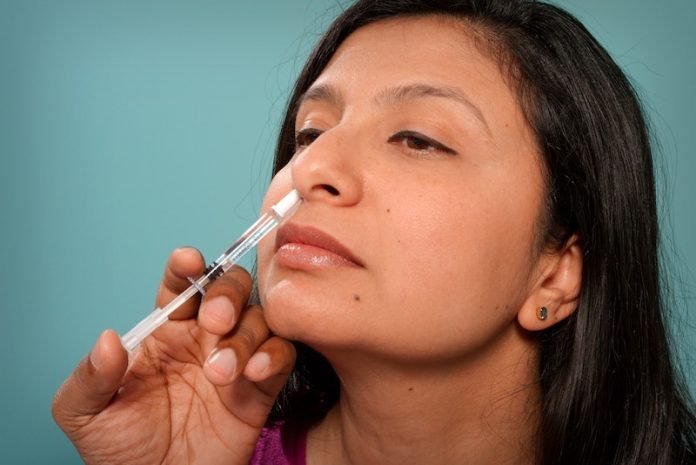
In a new study from the University of Houston, researchers developed an intranasal vaccine that provides durable immunity against the disease.
They say the vaccine can stimulate both systemic and mucosal immunity and has the advantage of being a non-invasive procedure suitable for immunization of large populations.
A big limitation of intramuscular vaccines is that they are not designed to elicit mucosal immunity.
It is the immune system responses that occur at mucosal membranes of the intestines, the urogenital tract and the respiratory system, i.e., surfaces that are in contact with the external environment.
As prior work with other respiratory pathogens like influenza has shown, sterilizing immunity to virus reinfection requires adaptive immune responses in the respiratory tract and the lung.
The nasal vaccine will also serve to equitably distribute vaccines worldwide, according to the researchers.
It is estimated that first-world countries have already secured and vaccinated multiple intramuscular doses for each citizen while billions of people in countries like India, South Africa, and Brazil with large outbreaks are currently unimmunized.
These outbreaks and viral spread are known to facilitate viral evolution leading to decreased efficacy of all vaccines.
The team says equitable distribution requires vaccines that are stable and that can be shipped easily.
Each of their components, the protein (lyophilized) and the adjuvant (NanoSTING) are stable for over 11 months and can be stored and shipped without the need for freezing.
If you care about COVID vaccines, please read studies about COVID-19 mRNA vaccines less effective for Delta variant and findings of these old vaccines can fight COVID-19 pandemic.
For more information about COVID and your health, please see recent studies about this common heartburn drug may help treat COVID-19 and results showing vitamin D and COVID-19: What you need to know.
The study is published in iScience. One author of the study is Navin Varadarajan.
Copyright © 2021 Knowridge Science Report. All rights reserved.



